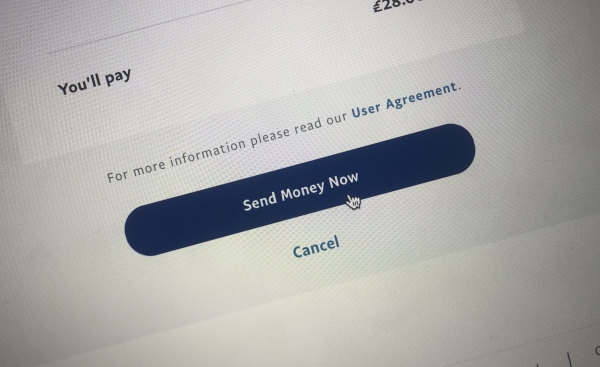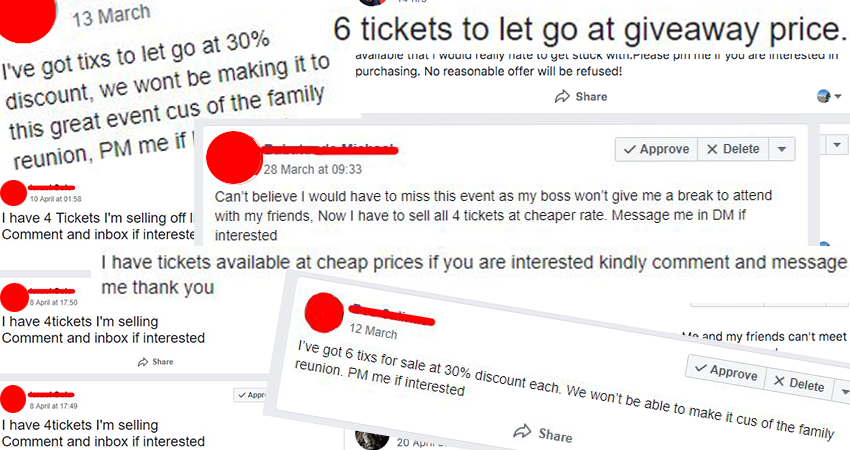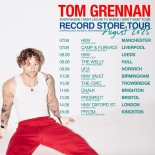
'Selling Four Tickets at Giveaway Price' - How to spot online ticket scams
Posted on: 18 Mar 2021This article was originally written for 365Bristol in August 2019, and has been updated for 2021. We apologise for any inaccuracies that we may have missed during the edit.
Give yourself the best chance of avoiding fraudulent sellers ahead of the UK's grand post-COVID reopening.
This is it - at long last, it's finally looking like life is starting to return to normal this summer, and this, of course, means the return of the incredible selection of clubs, events, promoters and artists that make up Bristol's music scene.
After the total cancellation of last summer's events calendar and more than a year with no nightlife, people are rightly snapping up tickets and booking anything and everything that comes their way ahead of an eagerly-anticipated return to the dancefloor in June.
Sadly though, the return of events has also meant the return of a wave of ticket scammers operating across social media channels. Event pages and venue posts are already being inundated with comments allegedly selling tickets, but how do you tell who's legit?

You might think that some events are safe from scams, that those behind their computer screens would never waste time trying to dupe you out of the price of a ticket to watch Beans On Toast at a pub in Bristol, but you'd be wrong.
At 365Bristol we report upwards of 100 Facebook accounts every week across the complete range of our event listings, from high-profile stadium tours to the more obscure occasions at some of the city's smaller venues.
Whether it's a £15 gig ticket or a £150 festival ticket the feeling of being scammed always stings, so have a look over our tips for spotting fake sale posts below to minimise risk in the future.
1) 'Generic' language in sale posts
As mentioned above, almost all of the fraudulent posts we encounter make little or no reference to the event they're supposedly selling tickets for.
The posts are often copy-and-paste jobs, sometimes going as far as blaming a family reunion, complaining that the seller's boss won't give them time off work or, as is the case below, "due to something happened", but usually just stating that there are tickets for sale at a discounted or cheaper price.
This is the first red flag you should always be aware of.

2) A suspicious Facebook profile
No friends? One photo? Joined in 2018? Based outside of the UK? If any or all of these are true of your ticket seller, then you should be wary of them.
The person you're dealing with may well be an exception to the rule and living under a rock before finally deciding to set up a Facebook account in the last 12 months, but obviously you should never give anyone the benefit of the doubt.
3) Name in Facebook profile hyperlink differs from username
This isn't something you'd usually notice in passing, but a fake seller's Facebook account will almost always carry a shorter name than it appears to on its hyperlink. For example, the profile for the account below (which we recently reported) was named 'Daniel Maxwell', but the name in the hyperlink is Oladayo Joseph Olalekan.
This is often an indication that the user has made a profile under their own name originally, but has changed the display name to target events in a certain country or area.
4) Unusual PayPal details that don't match the name of the user
It should be a clear warning if someone on Facebook named John Smith is asking you to send money to a PayPal account linked to an email address 'rx.sakata@yahoo.com' (one of many PayPal accounts we've identified as fake), but if you ever find yourself in this situation wanting to give someone the benefit of the doubt, don't.
Ask for alternative methods of payment and get concrete proof of ID before sending any money to anyone if you're unsure in any way. We'd also recommend you avoid paying via bank transfer wherever possible, and requests for payment in gift cards or Western Union should definitely get alarm bells ringing.
5) A delay after asking for someone's PayPal details
It seems to be a bit of a pattern that fraudulent ticket sellers will take a while to reply once you ask for their payment information. We don't know why this is - it may be that groups of scammers use blanket PayPal accounts and the seller has to pause to find out where the money should be going - but if someone's replies are coming in within seconds of your messages, and all of a sudden they hesitate or delay when you ask where to send your money, start asking questions.
6) Asking for payment in dollars
If Tom from London can't go to Love Saves The Day any more, when selling his ticket online there's absolutely no reason for him to be asking for the payment, or informing you of the ticket price, in dollars. It doesn't make any sense.
This should sound especially dodgy if the seller is offering you tickets to a gig in Milton Keynes or a standup night in Bath, so if you see dollar signs you 100% should go looking elsewhere.
7) Lack of specific knowledge on the event
This is simple but more often than not it'll trip the scammer up just asking about the event they're supposedly selling a ticket for and make it obvious that he or she isn't genuine.
Because the fraudulent sellers copy and paste their generic sale posts (see tip no.1) into so many different events, chances are they don't know anything about the specific ticket you're asking for.
Ask them about the date, the venue, the act or any other details that a genuine seller would clearly be able to tell you, and if they can't answer or try to stall you, walk away.
8) Declining to accept a video chat
If you follow the above steps and look out for more obvious signs it shouldn't come to this, but if you're 90% sure someone is genuine and want absolute peace of mind, it isn't out of the question to ask to have a quick video call to make sure the seller is who they say they are. If they refuse, the likelihood is they don't want you to know who they really are.
PayPal do have measures in place to allow you to file complaints and claim for refunds if you think you've been scammed buying tickets.
"PayPal Buyer Protection covers buyers in case there is a problem with their purchase" explains Claudia, a member of the PayPal press team.
“There are still some basic precautions we should all take to avoid scams, and we advise people to be wary of uninvited approaches or deals that seem too good to be true."
.jpg)
It's not always easy to spot ticket scams, and many of us have already fallen victim to them. If you or someone you know has been targeted by a fraudulent seller online, always make sure to report the incident to Action Fraud - find out how to do so here.
Alternatively, there are a number of official and trustworthy ticket reselling sites that you can use to make 100% sure you won't lose out. TicketSwap, Dice, SeeTickets Resale, Ticketmaster Resale and Twickets are all completely legitimate platforms where users can buy and sell tickets without risk.
All of the information in this article regarding fake accounts and fraudulent PayPal addresses has come directly from 365Bristol and has been double-checked for accuracy.
If you have any questions about the content or want to report a case of fraudulent ticket selling, please get in touch with us through our Contact Page.
Read more:
-
We Love Bristol Music: A celebration of our favourite Bristol dancefloors
Article by:

Editor - 365Bristol.com & LOUD Magazine
Matt is a Journalism graduate and writer, passionate about supporting Bristol music, art and independent business. Get in touch via email at matt@365bristol.com.
.JPG)

